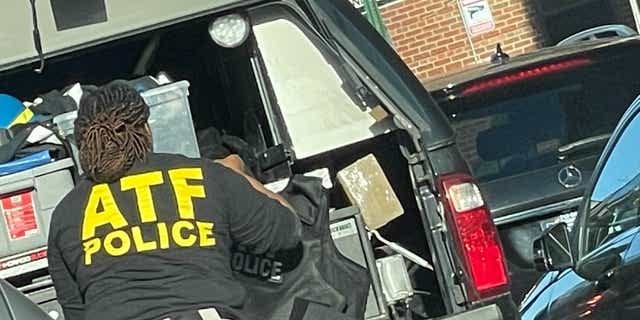Lawsuit Exposes ATF's Shocking Assault on Gun Stores
Gun Owners of America (GOA), a Second Amendment advocacy group, has filed a lawsuit against the Bureau of Alcohol, Tobacco, Firearms, and Explosives (ATF)
The lawsuit challenges the ATF's rigid inspection guidelines for federal firearms licensees (FFLs), which were implemented in January 2022 and make it easier to revoke a gun store's federal license.
According to GOA senior vice president Erich Pratt, this zero tolerance policy infringes on the lawful commerce guaranteed by the Second Amendment and represents the latest example of the current administration weaponizing federal agencies against their political enemies. Pratt also called for Congress to defund the ATF, citing the policy as further evidence of the need to address gun owners' concerns.
Sam Paredes, a board member of the Gun Owners Foundation (GOF), expressed his support for the lawsuit, emphasizing the unjust assault on the livelihoods of law-abiding individuals due to minor paperwork errors. Paredes stated that the GOF is proud to assist Bridge City Ordnance and other small businesses facing devastating consequences if the administration's hostility towards firearms is not addressed.
The lawsuit, named Morehouse Enterprises v. ATF (II), follows an initial lawsuit filed by North Dakota gun store Morehouse Enterprises, backed by the Second Amendment advocacy group, concerning the Biden administration's frame and receiver rule, commonly known as the ghost gun rule. The new lawsuit challenges the ATF's targeting of Morehouse for FFL license revocation under the zero tolerance policy.
After the initial lawsuit, the ATF inspected Morehouse Enterprises and identified five violations out of 5,000 gun acquisitions or sales. Notably, the agency had never visited the gun store before the initial lawsuit. The ATF is now seeking to suspend Morehouse's gun store license. A spokesperson for the ATF declined to comment on the ongoing litigation.
Internal documents obtained by Fox News Digital reveal the zero tolerance guidelines employed by the ATF to close gun stores. The ATF's FFL inspection guidance from January 2022 makes it clear that the agency has zero tolerance for willful violations that significantly impact public safety and the ATF's ability to trace firearms involved in violent crimes. The guidance assumes that license revocation is the appropriate action for violations unless extraordinary circumstances exist.
The guidance specifies violations that warrant revocation, such as knowingly transferring a firearm to a prohibited person, failing to conduct a background check, and providing false information on required records or license applications. It also defines administrative actions, including warning letters, conferences, revocations, fines, and license suspensions.
Under federal law, the ATF must establish willfulness to proceed with revocation, but it does not need to establish a history of prior violations. The agency may revoke a federal firearms license for initial violations that inherently demonstrate willfulness. These include transferring a firearm to a prohibited person, failing to conduct a background check, falsifying records or making false statements, refusing to cooperate with an ATF tracing request, refusing an inspection, or allowing a straw sale to occur.
The guidance indicates that the ATF can establish the knowledge element of willfulness in various ways, including a history of similar violations and documentation of discussions between the Industry Operations Investigator (IOI) and the FFL. The FFL's compliance history may include previous efforts by the ATF to inform the licensee of their legal responsibilities. The agency can also use inspection reports to establish willfulness even if no violations were found during the inspection.
Revocation is deemed an appropriate licensing action for any willful violation, including Gun Control Act violations not specifically addressed in the guidelines. When an FFL loses its license, it typically ceases operations and is required to send its gun purchase records, which must be retained indefinitely, to the ATF.
In conclusion, Gun Owners of America has filed a lawsuit against the ATF challenging the agency's zero tolerance policy for shutting down gun stores. The lawsuit focuses on the ATF's inspection guidelines that make it easier to revoke a gun store's federal license. Internal documents reveal the details of the zero tolerance policy and the criteria for license revocation. The outcome of the lawsuit will have implications for gun store owners and the enforcement of firearms regulations.





